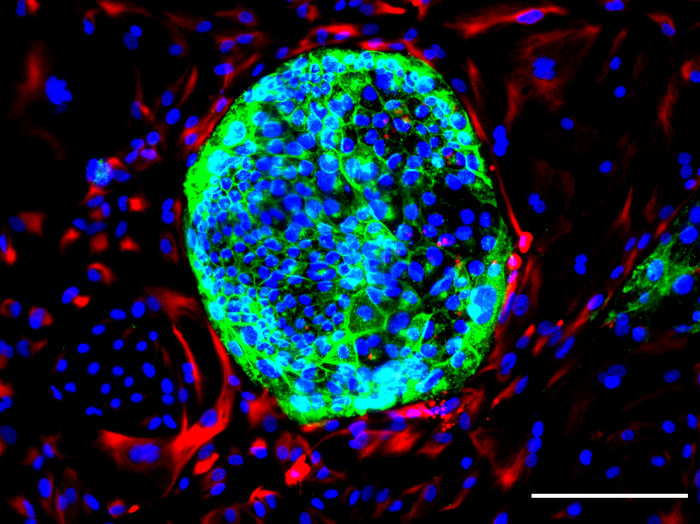
Belgian researchers create extraembryonic mesoderm cells
Researchers from KU Leuven for the first time have produced human cells able to mimic the molecular mechanisms of early human embryogenesis and related defects.
The team headed by Dr Vincent Pasque generated human extraembryonic mesoderm cells (EXMCs) that allow in-vitro studies on post-implantation human cell fate and developemental defects that can’t be mimicked with animal stem cells. ECMCs are not subject to the extensive ethical and legal restrictions that apply to blastocyte-derived human embryos for which research is legally limited to 14 days of embryonic development. Thus, the new renewable cell type that the Belgian researchers derived from human pluripotent stem cells allow to study developmental disorders in a human cell model. As a result, researchers can now better study what happens just after an embryo implants in the womb.
According to Pasque, EXCMs "generate the first blood in an embryo, help to attach the embryo to the future placenta, and play a role in forming the primitive umbilical cord. In humans, this type of cell appears at an earlier developmental stage than in mouse embryos, and there might be other important differences between species. That makes our model especially important: research in mice may not give us answers that also apply to humans." In the longer term, the model mightshed more light on medical challenges such as fertility problems, miscarriages, and developmental disorders, Pasque said.


 adobe.stock.com - ipopba
adobe.stock.com - ipopba BioDlink
BioDlink